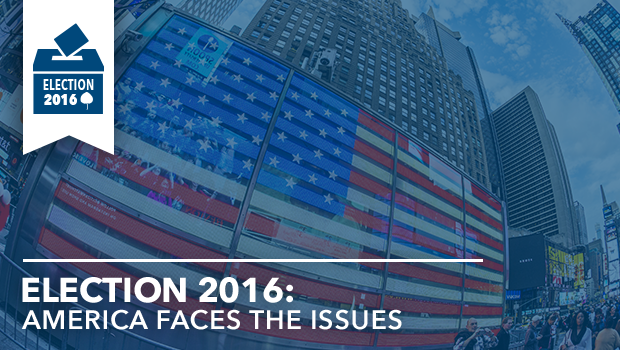Election coverage is all about the race for president. Every minute detail of the candidate is analyzed and analyzed and analyzed again. Such scrutiny is warranted, as being president is a solemn responsibility, and as president our next leader will confront a host of critical decisions that will impact our country’s economy, the security of our people, and the future trajectory of the nation as a whole.
The office of the president is a powerful one indeed, but the founding fathers, in their wisdom, sought to create a system that empowered the people, not one person. Article one, section one of the Constitution names the Congress first, declaring, “All legislative Powers herein granted shall be vested in a Congress of the United States, which shall consist of a Senate and House of Representatives.”
Congress is named first for a reason. Even though citizens decide who is elected president, the Congress is what truly represents the collective will of the American people. The soul of democratic government is in the legislature, not the executive.
Now, it’s no secret that Congress hasn’t been firing on all cylinders lately. A government shutdown, inaction on nominations, distasteful partisanship, and general dysfunction has diminished the role of Congress both as an active arbiter of national interest and policymaker. But the Constitution hasn’t changed, and Congress must regain standing by becoming a equal partner of the next president and a leader in confronting the many challenges before the nation if this country is to continue as a great power.
Congress doesn’t need to pass revolutionary, landmark legislation in order to get moving again. As the next administration comes into office, Congress can take the opportunity to rebuild its reputation by once again being a serious and considerate vetting agency for the next president’s cabinet nominees. By ensuring that the next cabinet officials have the substantive and management skills to run the agencies, Congress can show the American public that they still take their responsibilities seriously. Oversight over the transition must be robust and thorough, but members should also act swiftly to install leaders of the large federal agencies that are critical to functional government.
attitude of reconciliation and a goal of being effective on moving
legislation.
There are other basic things Congress can do to reclaim the mantle of responsibility bestowed on them by the Constitution. The next Speaker and Majority Leader could commit to scheduling five-day work weeks that allow members and Senators the time they need to get their work done and to get to know each other and build the trust that is such a key component of any endeavor, especially making sound public policy. They could voluntarily agree to limit fundraising while they are in Washington to prove to the American public that they are committed to the business of lawmaking while they are in the capital. They could limit the use of the filibuster and bring back open rules, allowing for broad amendment-making during the debates over laws. And they could commit to passing all appropriations bills this coming fiscal year so there is no continuing resolution or omnibus legislation at the eleventh hour to keep the government running.
No matter whether the Congress is held by Republicans, Democrats or split, its lawmakers must return from the 2016 election season with an attitude of reconciliation and a goal of being effective on moving legislation. I served in Congress for many years and I know well enough not to say that everyone suddenly needs to agree on policy ideas. The big differences that exist between Democratic and Republican theories of government do not need to go away. But Congress does need act on the pressing issues of the day in the best possible way that they can, by trying to craft bipartisan majorities on behalf of substantive legislation.
Congress can regain the respect and authority accorded to it by the Constitution if they take seriously and act according to the words of Representative Daniel Webster etched in the marble behind the Speaker’s chair: “Let us develop the resources of our land, call forth its powers, build up its institutions, promote all its great interests, and see whether we also, in our day and generation, may not perform something worthy to be remembered.”
Join the conversation by following us on Twitter at @AspenInstitute.


